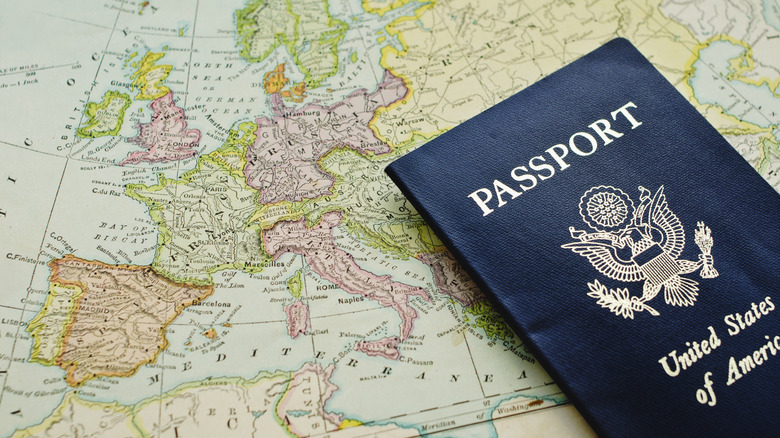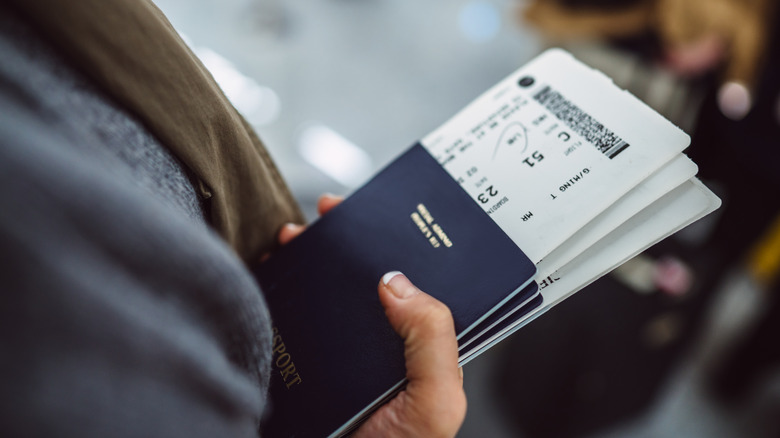Why Rick Steves Always Recommends Traveling With Extra Passport Photos
When traveling internationally, unexpected events like theft, lost luggage, or misplaced belongings are bound to happen. Carrying bags and purses that pickpockets target only increases the chances of losing your personal possessions. These situations are stressful enough — never mind having to worry about the aftermath. One way to avoid potential issues is to travel with backup documents so you'll always be prepared for the worst (if it happens).
Which documents are we referring to? For starters, travel expert Rick Steves recommends having extra passport photos on hand. As a seasoned globe trotter, he understands the challenges of being robbed while traveling abroad. Not only does it feel like a giant violation, but replacing stolen or lost documents can be difficult, especially if your passport is among the missing items. And if you were at fault for losing the documents, you'll be kicking yourself if you don't have a backup plan. Steves explains that having spare photos expedites the process of replacing your passport and any required visas. This will save you time and frustration during an already chaotic situation.
While bringing extra passport photos is essential, it's not the only precautionary measure. Several other documents should be included in your packing list. Some are mandatory for travel, while others are simply helpful in emergencies. So before you take off, get all your paperwork in order!
What other documents should you bring?
When heading to the airport, double-check that you have your ID. It's arguably the most important item you can pack since you won't be able to fly without it. Although it seems ridiculous, people sometimes get as far as check-in before realizing they left this precious document at home. To avoid this rookie flying mistake, verify what type of documentation is required in advance. International flights require a passport, but domestic flights only require a state-issued ID. So, despite the long, transpacific trip, as an American, you don't need a passport to visit Hawaii.
Depending on where you're traveling, you may need a visa. Currently, U.S. citizens don't need a visa to travel to Europe, but as of 2025, they will need to apply online for the ETIAS travel authorization. Some airlines, particularly budget carriers, require printed tickets — and may charge you extra to print at check-in. If you plan to rent a car, your driver's license and potentially an International Driving Permit (IDP) are also required.
These documents are the bare essentials, but other paperwork may also prove useful. Printed copies of your passport, health documents, and travel insurance are always a good idea. And although almost everything is digital these days, it helps to have a backup option. You wouldn't want to arrive at the hotel check-in after a long trip only to discover your booking isn't in the system. As such, Rick Steves recommends printing reservation details for flights, trains, hotels, and car rentals. If you prefer going the paperless route, take a screenshot of these reservations. Just make sure to save it on your camera roll so you can access it without Wi-Fi.

